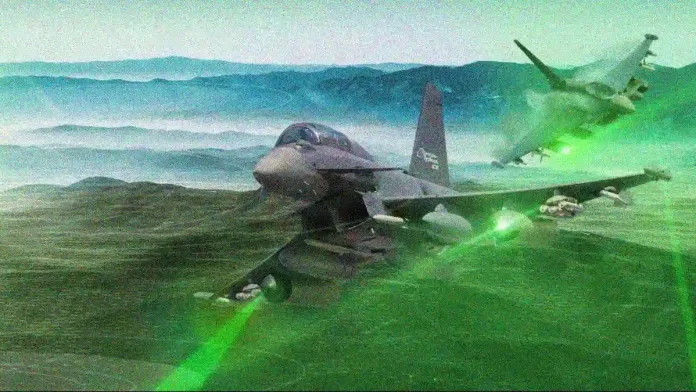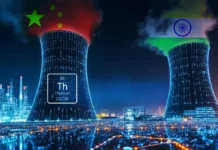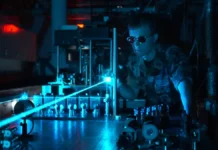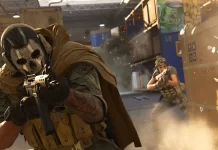In the rapidly changing landscape of warfare and defense, technological advancements play a critical role in shaping the strategies and capabilities of armed forces worldwide. Quantum sensing in modern warfare, is one of the sophisticated technologies in this technology Principles of quantum mechanics are harnessed to revolutionize the accuracy, precision, and sensitivity of various sensing technologies. Quantum sensing has the potential to transform the way military operations are conducted, offering enhanced navigation, communication, surveillance, and detection capabilities. In this article learn about the applications of quantum sensing in modern warfare, and explore how quantum technologies could reshape the modern battlefield.
Contents
Quantum Sensing in Modern Warfare
Quantum sensing in modern warfare means a cutting-edge application of quantum technology to enhance various aspects of military operations and tactics. While this field is still evolving and its full potential is yet to be realized, there are several promising ways in which quantum sensing can impact modern warfare are as follows:
Quantum sensing’s impact on navigation and communication systems could be profound. Quantum sensors offer the promise of more accurate positioning, which is crucial for coordinating troops and resources during complex military operations. Quantum-based communication channels, through techniques like Quantum Key Distribution, Quantum Communication Security, Quantum Navigation, and Positioning, provide an unbreakable layer of security against eavesdropping and cyberattacks. This could prove invaluable in maintaining secure military communications amidst the growing threats of information warfare.
Precision Timing with Atomic Clocks: As accurate timing is critical for coordinating actions, particularly in complex and fast-paced scenarios, Highly accurate atomic clocks based on quantum principles can enhance synchronization in military operations.
Quantum Communication Security: Quantum key distribution (QKD) is a quantum technology that offers unbreakable encryption for communication. In modern warfare, secure and tamper-proof communication channels are essential to protect sensitive information from interception and cyberattacks. Learn more about Quantum key distribution (QKD).
Quantum Navigation and Positioning: Quantum sensors can provide highly accurate positioning and navigation information, allowing military forces to operate with greater precision. This can be crucial for coordinating troop movements, targeting, and avoiding friendly fire.
Quantum Radar
Stealth technology has significantly altered the dynamics of modern warfare. Quantum radar systems, utilizing the principles of quantum entanglement, have the potential to revolutionize the detection of stealthy targets. Quantum radar can pierce traditional radar jamming techniques by minimizing noise and enhancing signal-to-noise ratios, ensuring that previously elusive targets can be accurately tracked and engaged.
Securing Communications with Quantum Encryption
Secure communication is essential in modern warfare. Quantum encryption techniques, which exploit the fundamental principles of quantum mechanics, offer unbreakable encryption methods. This technology enables military personnel to communicate confidential information with the utmost confidence that their messages remain inaccessible to unauthorized parties. The integration of quantum encryption could safeguard critical military intelligence and prevent potential breaches.
Quantum-based countermeasures can also be used to develop countermeasures against adversary technologies. For example, quantum encryption can protect against cyberattacks, and quantum radar can disrupt enemy stealth capabilities.
Quantum Surveillance and Imaging
Quantum-enhanced imaging techniques provide a new dimension to surveillance. In low-light environments or through obstacles, quantum sensors can capture images with higher resolutions, offering military personnel enhanced situational awareness. This capability could prove instrumental in identifying potential threats, assessing enemy movements, and making strategic decisions on the battlefield.
Quantum Imaging and Surveillance: Quantum-enhanced imaging techniques can provide higher-resolution images, even in low-light or obstructed environments. This capability enhances situational awareness, aiding in target identification, threat assessment, and decision-making.
Quantum Gravimetry for Subsurface Detection: Quantum gravimeters can be used to detect underground structures, tunnels, and hidden caches, helping to uncover covert activities and threats.
Quantum Inertial Sensors: Quantum sensors can improve the precision of inertial measurement units (IMUs), which are used in various military applications, including guided munitions, drones, and navigation systems.
Quantum Sensors for Detection
Quantum sensing’s potential to detect specific signals, materials, or environmental changes could find applications in detecting hazardous agents. From chemical and biological substances to radiological or nuclear threats, quantum sensors offer the sensitivity required to identify hidden dangers that may pose risks to military personnel and civilian populations. This capability is invaluable for identifying and responding to threats.
Conclusion
As quantum sensing continues to grow, its integration into warfare and defense holds excellent promise. By harnessing the power of quantum mechanics, military forces could gain unprecedented advantages in navigation, communication, detection, and surveillance.
The practical deployment of quantum sensing technologies in warfare is subject to various factors, including technological readiness, budget constraints, ethical considerations, and international regulations. Additionally, the development of quantum sensing for military use often occurs in classified or sensitive environments, making specific details less accessible to the public. As quantum technologies continue to advance, their integration into modern warfare has the potential to provide military forces with a significant advantage in terms of precision, security, and situational awareness.
However, with these opportunities come challenges—ensuring the reliability and robustness of quantum technologies, addressing potential vulnerabilities, and navigating ethical considerations. As the boundaries of technology are pushed, the utilization of quantum sensing in warfare must be approached carefully, respecting both its potential benefits and the broader implications for international security and stability. The ethical, legal, and strategic implications of these technologies also require careful consideration and international cooperation.
Sources
- Degen, Christian L., Friedemann Reinhard, and Paola Cappellaro. “Quantum sensing.” Reviews of modern physics 89.3 (2017): 035002.
- Krelina, Michal. “Quantum warfare: definitions, overview, and challenges.” arXiv preprint arXiv:2103.12548 458 (2021).
- Krelina, Michal. “Quantum technology for military applications.” EPJ Quantum Technology 8.1 (2021): 24.
- McKay, Emma. “Keep the fight unfair”: Military rhetoric in quantum technology.” arXiv preprint arXiv:2203.01415 (2022).
- Der Derian, James, and Stuart Rollo. “Quantum Warfare.” Routledge Handbook of the Future of Warfare. Routledge, 2023. 319-329.
- Křelina, Michal. “Quantum Technology in Future Warfare: What is on the Horizon?.” Future Warfare and Technology: Issues and Strategies,(New Delhi: ORF and Global Policy Journal, 2022) 1: 107.
- Guy, Dennis C., and Gravely Naval Research Group, Naval War College. “The Weaponization of Quantum Physics: How Technology is Transforming Warfare.” Gravely Naval Research Group, Naval War College (2018).
FACT CHECK: We strive for accuracy and fairness. But if you see something that doesn’t look right, please Contact us.
DISCLOSURE: This Article may contain affiliate links and Sponsored ads, to know more please read our Privacy Policy.
Stay Updated: Follow our WhatsApp Channel and Telegram Channel.












